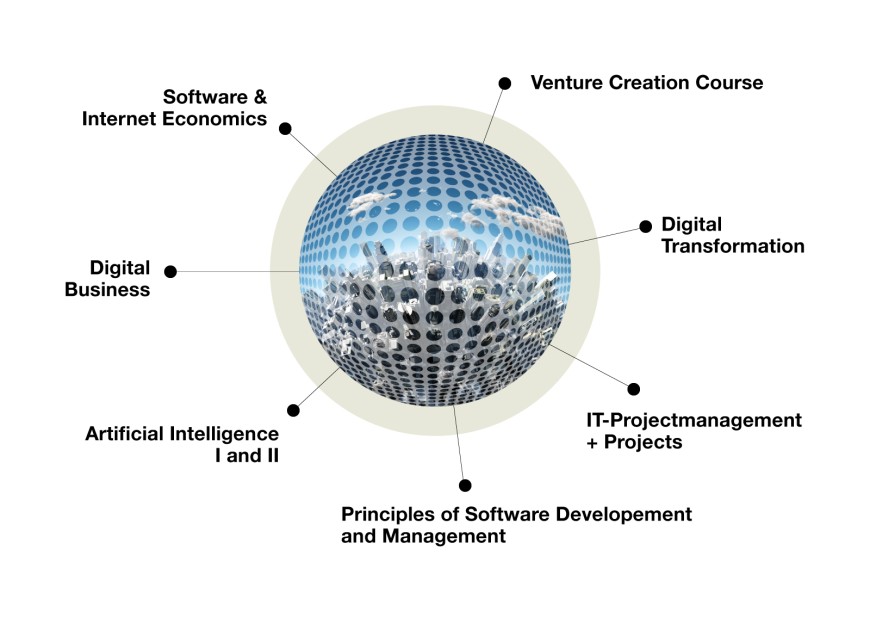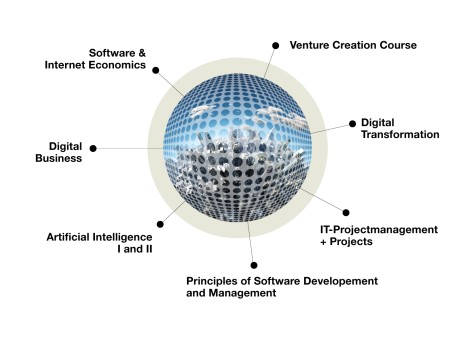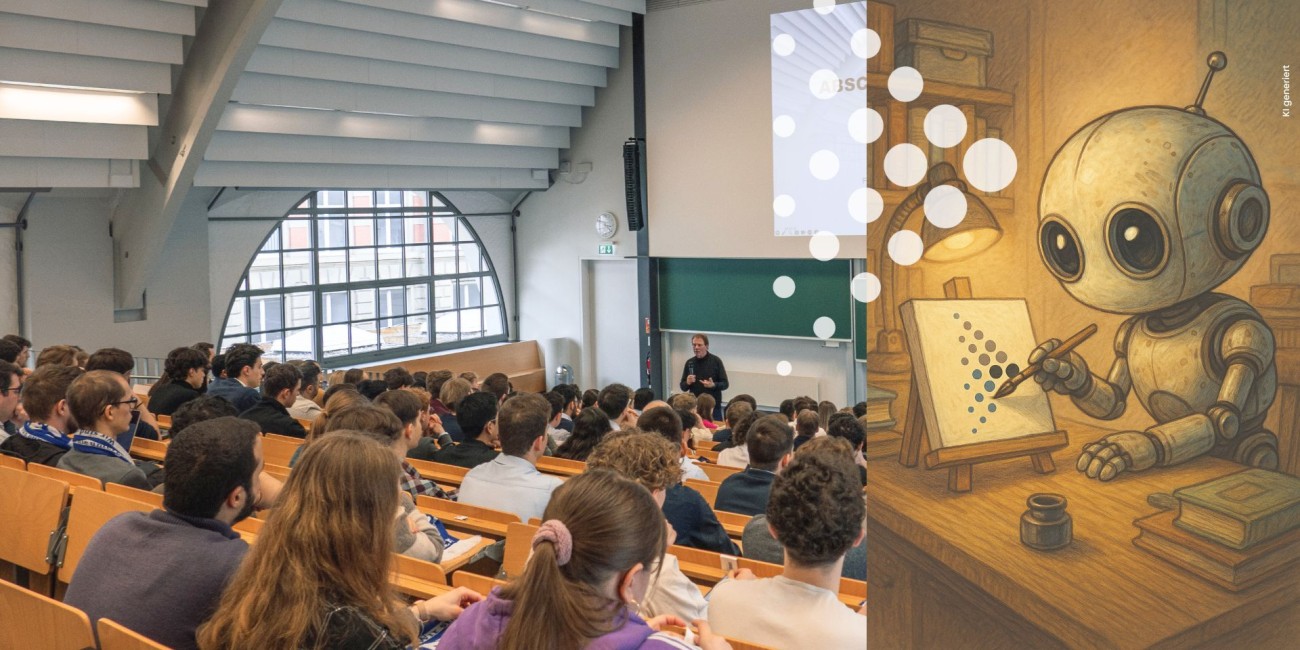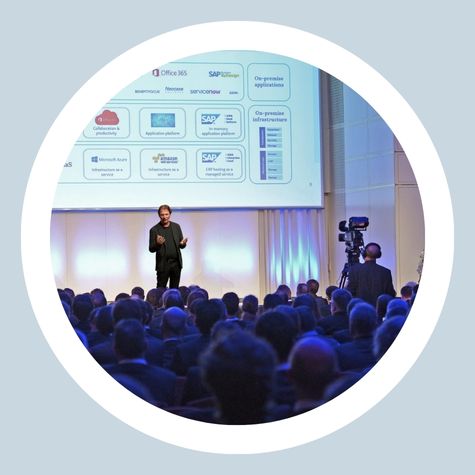We are proud that our courses have received several awards.
Our aim is to combine academic rigor with real-world challenges from business and society. The motto is: You have to bring something to the party. We expect and hope our students will demonstrate curiosity, commitment, and the motivation to make a difference.
Our teaching concept combines innovative didactic approaches with the close integration of our industry partners in lectures and tutorials. For many years, we have enjoyed a trusting partnership with several companies of varying sizes.
We also utilize innovative learning methods such as case studies, agile software projects (Scrum), and the collaborative development and analysis of business models.
To create optimal and flexible learning conditions—in addition to traditional classroom instruction—we offer our courses in a dual format: blended learning concepts with lecture recordings and accompanying online forums.


This course focuses on the use of artificial intelligence (AI) as a driver of digital transformation in business and society. Using selected industries—including Industry 4.0, finance, mobility, medicine, and sports—we analyze how AI-based systems fundamentally change value creation, business models, and decision-making processes.
A particular focus is placed on data-driven decision-making and the development of new digital and AI-based business models. Students learn how companies strategically use artificial intelligence and machine learning to optimize processes, drive innovation, and achieve sustainable competitive advantages.
In addition to concrete application examples, we also address technical, organizational, and ethical issues associated with the use of AI—such as transparency, accountability, acceptance, and the impact on work and organization.
The course is closely integrated with industry practice. Guest lectures from our cooperation partners, such as Lufthansa Cargo, Anacision, Eckelmann AG, Knauf, Samson AG, Stifel, and Campana & Schott, provide insights into real-world AI projects and the practical application of artificial intelligence.
In the accompanying exercises, the lecture content is reinforced through current case studies, with a particular focus on the use of AI in real-world decision-making situations.








